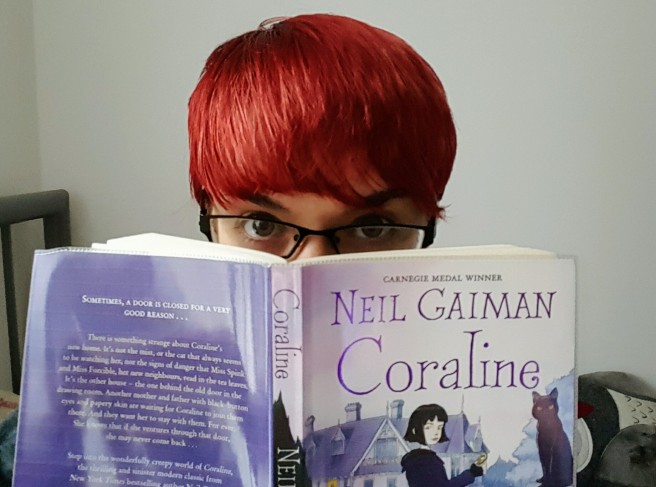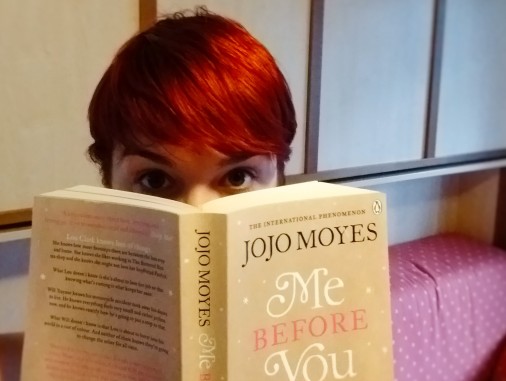All being well, by the time this post is published I should be safely ensconced in my childhood home, being welcomed into the bosom of my loving family with lots of wine and cheese and a generous helping of guilt tripping from my Grandma.
Cosy!
And, as it’s common knowledge that when one is cosy and warm and well fed and safe is the best time to scare yourself silly… my latest read is apropos!
I’ve seen the film adaptation of Coraline ages ago now, and it’s high on my list of faves. Super-creepy but not in a gory way (I don’t deal well with ketchup blood and slasher flicks), I’ve watched it again and again, loving how the story plays on the imagination and fears that start in childhood and linger in the back of your mind as an adult. Now, I know I hardly need to even say it at this point, but – the book is better! (Duh.) Just as dark as the Sandman comics, and yet in a way that is suitable for children; reading Coraline instead of watching allows for one’s imagination to come into play even more. The Other Mother in my head is scarier than the one on screen by far… in fact, all the characters are.
The main noticeable difference, though, is the absence of the sidekick character ‘Wybie’ from the book. Having done a little research, it appears Wybie (a vaguely annoying boy who lives in the same building as Coraline, and whose ‘other self’ helps her in the world behind the mirror) was invented for the film, so avoiding having Coraline wander around talking to herself. This makes total sense to me! One of the difficulties in adapting a book for screen is how to translate an internal monologue – giving Coraline someone to monologue to was a neat way of getting past that hurdle, I think. I have to say, though, that I think the story is stronger without Wybie.
(Just another reason why the book is better. Duh.)
Just in case you’ve been living under that rock, here’s a brief synopsis:
Coraline (not Caroline) is a young girl (about 10, maybe?) when her family move to a new house. They don’t have the whole house – downstairs is owned by Miss Forcible and Miss Spink, who used to be actresses, and above them lives the Crazy Old Man Upstairs, who claims to be training a mouse circus. Feeling dreadfully bored and ignored (her parents work all day at home, too busy to talk to or play with her, and the other adults keep getting her name wrong), Coraline goes exploring. One day, it rains so hard that she has to explore inside… and she comes across a door to nowhere. A big, carved wooden door, opening onto bricks – until it doesn’t. In the world behind the door, Coraline finds her Other Mother, who wants her to stay, so she can love her and play with her and spend time with her. It’s exactly what she wished for – right?
Neil Gaiman at the top of his game, and definitely not just for children. It’s only when you’re scared that you’ve got to be brave…




